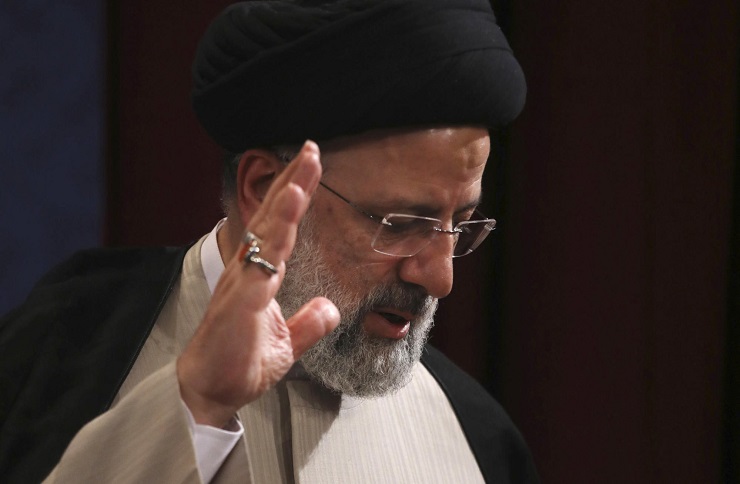Even as the Biden administration continues to follow a lacklustre approach to revive the JCPOA, following essentially the Trump administration’s “maximum pressure” strategy to force Iran into agreeing to enter a new JCPOA, Iran’s recently ensured membership of the SCO comes as an additional dilemma for the US in the sense that it will entrench Iran more deeply with the US’ strategic rivals than has been the case so far. On August 11, when the Secretary of the Security Council of the Russian Federation Nikolai Patrushev made a phone call with his Iranian counterpart, Admiral Ali Shamkhani, the former officially conveyed to him the news that ‘political obstacles’ to Iran’s membership of the SCO have been removed, and that Iran will soon become a permanent member of the organisation. With Iran accorded a full membership by Russia and China, two of the world’s most important players, the strength of the US position (propaganda) vis-à-vis Iran as a ‘sponsor of terrorism’ in the Middle East has weakened; for, as it stands, the SCO heavyweights seem to have decided to offer full membership to Iran regardless of the US sanctions and the on-going talks about reviving the JCPOA.
After Afghanistan, it appears to be a second major geo-political set-back for the Biden administration within a few months of its inaugural. To a significant extent, this set-back is a direct outcome of the Biden’s administration’s high ambitions vis-à-vis making Iran include non-nuclear and even typically political issues in the on-going talks in Vienna. Democratic hawks like Senator Bob Menendez, who also chairs the Senate Foreign Relations Committee and is very close to Biden, have been advocating an approach that stresses clipping Iran’s both nuclear and geo-political wings. In a latter, for instance, that Bob and others wrote to Biden as early as March 2021, they argued that:
“.. [even] outside of its nuclear program, Iran continues to pose a threat to US and international security through exporting arms, including highly accurate missiles, supporting Shia militias that target US service members, and supporting terrorist organistaions and other malign actors throughout the region.”
Therefore, Bob, Lindsay Graham and others argued further,
“we strongly believe that you should use the full force of our diplomatic and economic tools in concert with our allies on the United Nations Security Council and in the region to reach an agreement that prevents Iran from ever acquiring nuclear weapons and meaningfully constrains its destabilising activity throughout the Middle East and its ballistic missile program.”
Now that Russia and China, by offering Iran a full and permanent membership of the SCO, have given a major boost to Iran’s position in the region, the Biden administration will find it extremely difficult to force Iran to roll-back its influence in the Middle East – in particular, Syria, Yemen, Iraq and Lebanon.
The position that influential Democrats have taken as diehard opponents of re-entering the JCPOA is one reason why the Biden administration has not been able to swiftly undo the steps that the Trump administration had taken to withdraw from the agreement that Biden himself had overseen as the then vice-President. If Joe Biden was then convinced of the necessity and sufficiency of the JCPOA as a ‘reasonable’ pact, there is no reason, except the opposition from within his own party, why he should hesitate to revive the JCPOA and make Iran adhere to its parameters.
But the administration seems under pressure from the Democrats, who have been relentless in advocating steps that aim to simply end Iran’s all nuclear facility, regardless of whether they are for civilian/peaceful purposes. In a recent article that Bob Menendez and Lindsay Graham wrote in the Washington Post, the hawkish duo made the case for making Iran give up its domestic enrichment facilities altogether in favour of a regional “nuclear fuel bank” to meet its needs. While once again accruing Iran of sponsoring terrorism, the duo argued:
“if Iranian leaders truly desire a peaceful nuclear program, then they ought to welcome the creation of a nuclear fuel bank for the Persian Gulf region …. on the condition of forgoing domestic uranium enrichment and reprocessing .”
While the Democratic hawks continue to oppose reviving the JCPOA – which is one reason why Vienna talks have not produced positive results so far – it remains that Iran’s membership of the SCO will make it even more difficult for the US and Israel to resort to their ultimate option: a military/air strike on Iran’s main nuclear facilities.
There are two fundamental reasons for this. First, Iran’s regional and international profile has really become stronger. Even though it has been sanctioned, it is not isolated by any means. But for the support Russia and China have been providing to Iran, the US-Israel would already have imposed a military solution on Iran. Secondly, while the US and Israel accuse Iran of destabilising the Middle East, Nikolai Patrushev’s call to his Iranian counterpart confirmed that Russia and Iran continue to cooperate on a range of issues – Syria, Afghanistan, and the Persian Gulf – and that Russia (as also China) does not see Iran’s role in the Middle East as “destabilising” in any possible way. On the contrary, Iran’s SCO membership confirms that its geo-politics not only has legitimate grounds (Iran did not throw the JCPOA out of the window; the US did), but that its peculiar geo-political interests do not warrant its exclusion from the SCO.
In the wake of the disaster the US/NATO is facing in Afghanistan, international support for a military adventure against Iran, or pursuing unrealistic and too ambitious political goals vis-à-vis Iran is likely to become a lot more difficult for the Biden administration than has been the case. The US debacle in Afghanistan is likely to inject confidence into the defiant Iranian leadership, with Iran’s SCO membership acting as a booster.
Salman Rafi Sheikh, research-analyst of International Relations and Pakistan’s foreign and domestic affairs, exclusively for the online magazine “New Eastern Outlook”.

